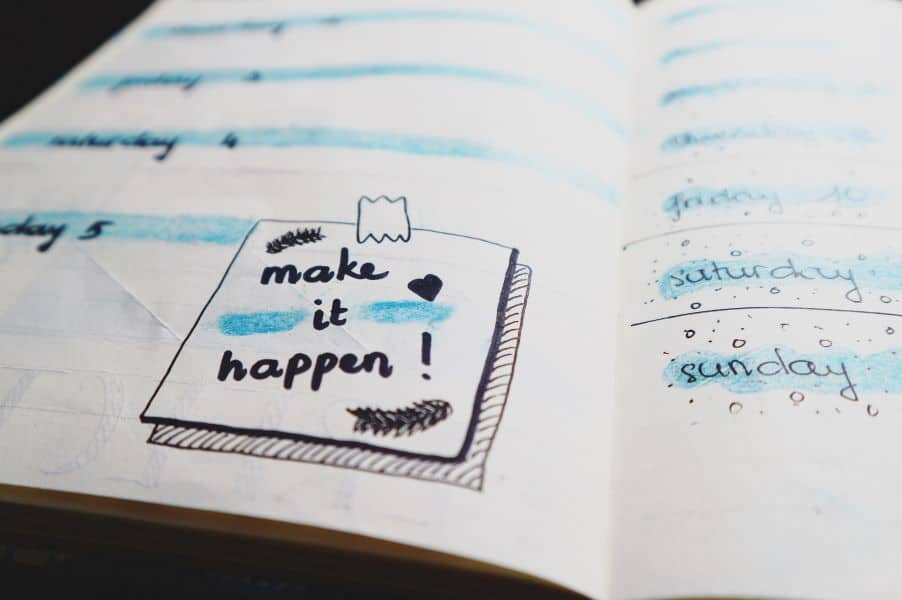Why you shoot yourself in the foot (and how to stop)
Reading time: 5 minutes 11 seconds
It was a cold November night in 2008 as Plaxico Burress, wide receiver for the New York Giants, made his way into the Latin Quarter nightclub in Manhattan. Nine months earlier, he made a game-winning touchdown in Super Bowl XLII against the favorites, the New England Patriots. He was riding high on life.
Within his sweatpants, he carried a Glock semi-automatic pistol. At some point that evening, the weapon fell, and as Burress caught it, he accidentally discharged it, the bullet piercing his thigh.
It wasn’t just the injury, though. He soon found himself let go by the Giants, spent twenty months in prison for illegal possession of a firearm, and missed two full seasons in a career where he was at the top of the game.
Burress shot himself in the leg, not the foot, but still made his life immeasurably worse.
While few of us would ever do something like this, we’re all guilty of doing things to make life harder for ourselves.
Your own worst enemy
One of the phrases I have heard many times from therapy and coaching clients is, ‘I’m my own worst enemy’. Not only do we see ourselves as victims of the world, but we also feel like we are the victims of ourselves. We are both villains and victims at once. If there is ever anything we should be able to control in this world, it’s what we do to ourselves.
Self-sabotage is when, instead of doing what we know we need to do, we do the opposite. Or, we fail to take the action that, if only we took it, all our problems would be solved. Psychologists have been trying to understand this tendency for years. Why do we cause ourselves problems when we obviously don’t want to?
A useful way to look at this is to understand the difference between what Robert McKee, author of Story, calls ‘Conscious desires’ and ‘Subconscious drives’. There is what you know you want consciously. And there is what you also want, but you don’t realize that you do.
You might want a relationship, but subconsciously you might have a fear of commitment. You might want the promotion but subconsciously worry about the extra responsibility, for example. The conflict between these two can cause you to sabotage your success.
Stacked on top of this is the reality that your subconscious drives are often aiming to maintain an emotion that you are used to, even if that emotion doesn’t feel good. Sometimes we will actively try and stay in a state of self-pity rather than take action that gets us out of it.
We sometimes feel good because we keep feeling bad. As Dr. Joe Dispenza suggests, “we’re addicted to the emotions of our past.” For instance, instead of going after what we want, we can often wallow in self-pity. We can become addicted to our feelings even when they don’t serve us.
To make matters worse, often, it’s not that you actually want something; you just think that you do and act as if you do. You don’t spend time actually imagining what your reality will be like if you achieve the goal.
The idea seems nice on the surface. For example, you want to start a company but, subconsciously, you aren’t prepared to put in the long days and nights that it will involve in the first few months or years. It’s not thought out well enough.
How to stop ruining your life
As we explore all of these fascinating quirks of our brain, it is critical to understand what we can actually do to stop sabotaging ourselves and provide us with opportunities to thrive.
So let’s unpack what we’ve discussed so far and point to some solutions.
1. Understand your conscious desire.
What is it that you want to achieve?
What does that look like?
What are the actions you must take to succeed?
How and when must you take them?
2. Understand what it will require to achieve it.
What will the process of achieving the desire be like?
What does it require from you?
What sacrifices will you have to make?
How hard will it be?
What will you miss out on?
Are you prepared to put in the effort to achieve this?
3. Understand what it will be like when you succeed.
What added responsibility might it put on you?
What kind of relationships will be impacted by your success, and how will they be affected?
What negative things will come about as a result of your success?
Is it worth doing?
4. Think about the overall desire and ask yourself what you are feeling deep down about this.
This is the hard part. Try to understand your subconscious drives. Try to be as specific as possible in labeling what you are feeling.
What are your emotions when it comes to doing what you need to do?
Are you getting distracted?
Are you getting bored?
Are you afraid, and if so, what are you afraid of?
What are the feelings that are acting as forces of antagonism against you?
5. Understand what you are getting from these emotions.
It’s important to become aware of the value that you get from feeling these feelings of being stuck or failing at something. Just because something feels bad doesn’t mean you don’t want to feel it! Ask yourself:
Why are you engaging in these emotions?
What are they doing for you?
What do those emotions mean?
What other, more empowering emotion would feel even better?
6. Find ways to achieve your desire while creating better emotions you can enjoy more.
Finally, you want to align your conscious desire and subconscious drives by understanding how you can satisfy the drives while implementing the strategy to achieve the desire. Answer the following questions:
What do you need to do to satisfy the subconscious drives as you pursue your conscious desire?
How can you mitigate the impact that a lack of alignment might create between your desire and drive?
How can you adjust your strategy so it is easier and more fun for you to do?
How can you call out any drive or emotion that tries to stop you and handle it effectively?
These six steps will help you avoid self-sabotage moving forward.
Understanding yourself is the key
I have no doubt that Plaxico Burress didn’t intend to shoot himself, even subconsciously. But I’m also sure that whatever motives and urges that led to him wanting to bring a concealed weapon into a nightclub in his sweatpants played a large part in impacting his career.
We often pick fights with our significant others in an attempt for more drama or to exert power over them. We often leave our college studies to the last minute to get the thrill of the pressure of cramming to succeed.
In order to stop shooting yourself in the foot, you need to understand why you sabotage yourself in the first place. You must understand what you are getting from the emotions that try and stop you from achieving success. You have to make sure that you understand what will be involved in going after what you want.
Once you do, instead of being your own worst enemy, you can be your own best friend. Above all, you need to stop putting a loaded gun in your sweatpants.
Thanks,
Owen.
P.S. If you are interested in catching up on any of the past editions of Inner Propaganda, you can find them all here.





